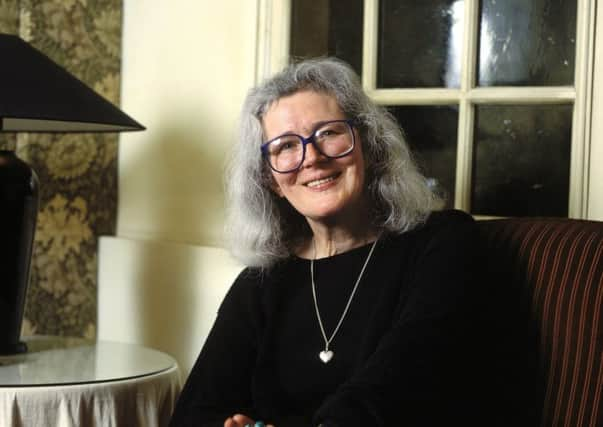Book review: The Invention of Angela Carter, by Edmund Gordon


That is just one of the pieces of Carteriana which have been preserved in Edmund Gordon’s fine and sympathetic biography. Having been given access to her unpublished journals and some of her private correspondence, as well as interviewing friends, literary colleagues and lovers, the book is as much a treasure trove of glimpses of unseen work as it is a conventional biography.
Carter was born in 1940 and grew up in south London, the daughter of a Scots journalist, Hugh Stalker, and a domineering mother, Olive. She married young to escape, and divorced her first husband after a book prize allowed her to travel to Japan, where she had two passionate affairs about which she wrote unsparingly. Although Gordon assiduously notes her other relationships and second marriage, as well as the various universities at which she taught creative writing, he never loses focus on why a biography of Carter is important: she was a singularly significant writer who changed the landscape of English language fiction. The author of nine novels and six collections of short stories, whose work – particularly Wise Children, A Night At The Circus, The Bloody Chamber, The Company Of Wolves (made into a film by Neil Jordan), The Infernal Desire Machines Of Doctor Hoffman and The Magic Toyshop – now features regularly on university literature courses, she was also a poet, dramatist, anthologist, reviewer, essayist, translator and television writer, as well as producing one of the key texts of feminism in the period, The Sadeian Woman And The Ideology Of Pornography. One of the melancholy aspects of such a detailed work is the number of projects which came to nothing – her opera based on Woolf’s Orlando, the novel she was planning before her death using characters from Charlotte Brontë, a production of Wedekind’s Lulu – but this is balanced by sensitive readings of the less-well known of her works.
Advertisement
Hide AdCarter is often described as a magic realist and a feminist, although she was expert at chafing against obvious definitions. In terms of the “magic realist” label, Gordon is astute at how Carter saw herself as someone debunking mythologies rather than creating new ones, as, say Rushdie or Marquez did. She did apply a forensic approach to fairy tales, drawing out from them the ulterior hints about gender and violence. She was certainly a feminist, but she was an awkward one: there is a very funny letter where she rejoices in getting up the “proboscis” of American feminist writer Andrea Dworkin. She also always maintained that she was a feminist because gender inequality was as damaging to men as it was to women. At the same time she was writing for Spare Rib she was having stories published in soft-porn magazines. In typically raucous and provocative form she claims the point of her feminism is that “no daughter of mine should be in a position to write: By Grand Central Station I Sat Down And Wept,” – the title of Elizabeth Smart’s poetic novel about an affair – “By Grand Central Station I Tore Off His Balls would be more like it, I should hope.”
Gordon is wry and sensible about Carter’s posthumous elevation to being a kind of secular saint, a benevolent white witch of women’s writing; insisting on her complexity and the furious political dimension to her work. Indeed, many of the writers who self-consciously affirm her influence – she would have been outraged, I think, at a “School of Carter” – utterly lack her bawdy indignation.
Life, as Carter knew, is a messy business, whereas books, however experimental and rambunctious, require order. Gordon imposes a kind of order through notions derived from the psychotherapy of Melanie Klein, whom Carter certainly read; especially the twinned anxieties around “abandonment” and “engulfment”. It does have some purchase on her life, especially her vexed relationship with her mother, and the notable absence of mothers in her work. But one could have as easily looked at her life through the lens of self-becoming, or a Situationist notion of “it is forbidden to forbid”. The most telling thing, particularly about the journals, is an almost total lack of self-censorship. She writes with graphic candour about her sexual appetites. During her affair with Mansu Ko she explicitly compares herself to Humbert Humbert, the paedophile narrator of Nabokov’s Lolita.
Much of this is fascinating, especially when Carter is reflecting on the power dynamics in a relationship, but the biography is neither prurient nor overly gossipy. It is a serious book about a profoundly serious writer. Gordon very humbly refers to it as a “first step to demythologising Angela Carter”, yet it re-enchants the reader with her work.
STUART KELLY
The Invention of Angela Carter, by Edmund Gordon, Chatto & Windus, £25